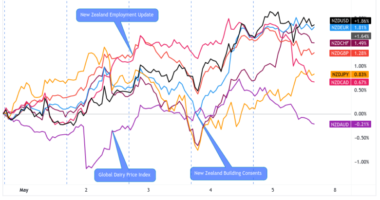Heads up, euro traders! The ECB will be announcing its policy decision on Thursday (Mar. 11, 12:45 am GMT) and might shift easing expectations.
For the newbies out there, make sure you read this lesson on why central bank decisions are a huge deal!
What happened last time?
In their January monetary policy statement, the ECB kept interest rates and bond purchases unchanged as expected.
After all, they are already making it rain through a massive stimulus package called the Pandemic Emergency Purchase Programme (PEPP) that they’ve expanded in December.
Chairperson Lagarde wasn’t too optimistic about the region’s recovery prospects then, citing that risks are still tilted to the downside. She went on to say that “an ample monetary stimulus remains essential” and that “all instruments can be adjusted and nothing is off the table” in case things get worse.
During the ECB presser, Lagarde also mentioned that the central bank is watching the EUR/USD exchange rate closely, warning that they could step in if the shared currency gets too strong too fast.
What’s expected this time?
The ECB is still expected to sit on its hands for the time being, but that doesn’t mean we’re in for a non-event!
In fact, market watchers are keen to find out what policymakers have in mind when it comes to tackling the surge in global bond yields.
You see, several senior ECB members including Lagarde have already been expressing concerns about rising yields being counterproductive to their easing efforts.
ECB board member Fabio Panetta suggested a “Harder, Better, Faster, Stronger” expansion of bond purchases in order to keep borrowing costs in check, warning that the risk of providing too little policy support far outweighed the risk of doing too much.
However, there is still a lot of disagreement within the Governing Council during the previous policy meetings, enough to lead market analysts to expect no concrete action from the ECB for now.
Instead, what they might announce are more high-level commitments on how the central bank can adjust the PEPP to counteract rising bond yields while reiterating that they are “monitoring the situation closely.”
Oh, and don’t forget that another round of staff projections is due this month, too!
How might the euro react?
The lack of immediate and concrete action from the ECB might be enough to keep the euro afloat, and any significant upgrades to growth and inflation forecasts could limit potential losses.
Boosting bond purchases, on the other hand, could spark an immediate euro selloff but might benefit the region in the longer run.
In any case, better be ready for sharp moves before, during, and after this top-tier event. Here’s a quick look at average daily EUR volatility to guide you in setting entries and exits:










